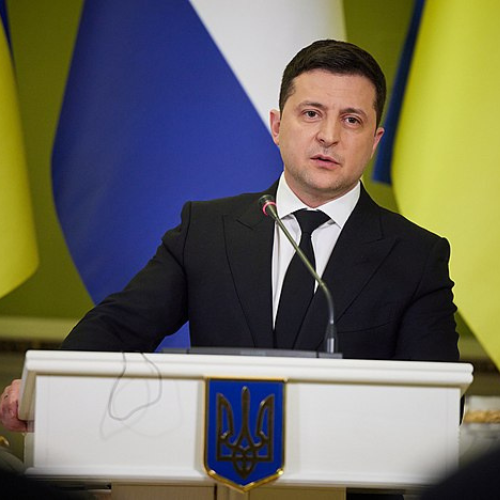In a recent interview with French media, Ukrainian President Volodymyr Zelensky voiced his strong disapproval of the International Olympic Committee’s (IOC) Neutral Flag Policy, which allows athletes from Russia and Belarus to compete under a neutral flag at the 2024 Paris Olympics. Zelensky described this approach as “semi-sanctions,” arguing that it falls short of effectively addressing the geopolitical tensions and humanitarian issues linked to the ongoing conflict involving these nations.
Details of the IOC’s Neutral Flag Policy
The IOC’s Neutral Flag Policy permits athletes from Russia and Belarus to participate in the Games as “individual neutral athletes.” This means they will compete without national symbols or flags, ostensibly to ensure a level playing field while maintaining some form of sanction against their countries. According to the IOC, 15 Russian and 17 Belarusian athletes are set to compete in Paris, but under strict neutrality rules.
Zelensky’s criticism highlights a broader debate over how international organizations should handle the intersection of sports and global politics. In his remarks, Zelensky emphasized the inadequacy of the neutral flag policy in light of the conflict’s severity. Zelensky argued that if the international community imposes sanctions, it should fully enforce them. He criticized the IOC’s Neutral Flag Policy as “semi-sanctions” and suggested that it would be better not to engage in superficial measures. He believes the IOC’s stance fails to address the gravity of the conflict and its significant impact on Ukraine.
Impact of the Conflict on Ukrainian Sports
The Ukrainian president’s frustration is rooted in the ongoing full-scale invasion by Russia, which has severely impacted Ukraine’s sports infrastructure and preparation for the Olympics. Since the conflict began, more than 500 Ukrainian sports facilities have suffered damage or destruction. This disruption has had a direct effect on Ukrainian athletes, resulting in a notably smaller team than in previous years. According to Ukraine’s National Olympic Committee (NOC), only 140 Ukrainian athletes will participate in Paris, marking the smallest delegation in the country’s Olympic history.
Comparison with Other International Sanctions
Zelensky’s remarks also drew a parallel between Belarus and North Korea, questioning the effectiveness of the neutral flag policy. He pointed out that North Korea, despite its global threats and arms dealings, faces harsher sanctions compared to Belarus, which also supports Russia’s military actions against Ukraine. Zelensky’s comments reflect a broader frustration with what he perceives as a lack of meaningful action from international bodies in addressing the conflict’s broader implications.
Broader Implications for International Sports
In addition to expressing concerns over the IOC’s policies, Zelensky’s comments also highlight the broader implications of the conflict for global sports. The war in Ukraine has not only disrupted the lives of athletes but has also raised questions about how international sports organizations should respond to geopolitical crises. The situation presents a challenge for the IOC and other sporting bodies as they navigate the complex interplay between sportsmanship, politics, and human rights.
Ukrainian Athletes’ Resilience and Determination
Despite the challenges, Ukrainian athletes remain resolute in their aim to leave a significant impact at the Paris Olympics. The country will be represented in 23 sports, including football, breakdancing, and sport climbing, which are making their Olympic debuts. This demonstrates the resilience and dedication of Ukrainian athletes, who continue to strive for excellence despite the adverse conditions they face.
Zelensky’s criticism of the Neutral Flag Policy is part of a broader call for a more robust and unified response to international conflicts that have far-reaching impacts on various sectors, including sports. His remarks highlight the need for a nuanced approach to sanctions and international policies that reflect the severity of the situations at hand.
As the Paris Olympics draw near, the discussion surrounding the IOC’s neutral flag policy for Russian and Belarusian athletes continues to develop. Zelensky’s comments serve as a reminder of the ongoing tensions and the need for international organizations to carefully consider the implications of their policies on global sports and geopolitical dynamics.
The controversy surrounding the IOC’s neutral flag policy for Russian and Belarusian athletes reflects the complex relationship between sports and global politics. Zelensky’s critique highlights the challenges faced by Ukrainian athletes and the broader implications of the conflict, emphasizing the need for a more decisive approach to international sanctions and policies. As the world watches the Paris Olympics, the conversation around these issues is likely to continue, highlighting the intricate interplay between sports, politics, and global affairs.


